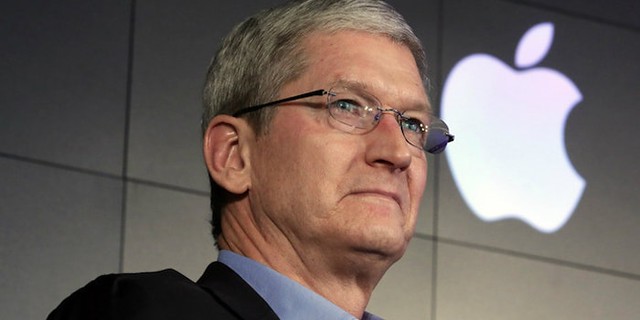 POLICY
POLICY
 POLICY
POLICY
 POLICY
POLICY
In a lengthy profile interview with GQ, Apple Inc. Chief Executive Tim Cook talks about everything from his day-to-day work life at Apple Park to his company’s big plans for augmented reality to why he thinks parents should keep a keen eye on how their children use digital technology.
In what is a sometimes personal, sprawling interview, Cook (pictured), who’s often seen as the more down-to-earth kind of tech leader when compared with the mercurial Elon Musk and the often strangely robotic Mark Zuckerberg, says he hates the word “normal.”
You could say he does have a resume, unlike most tech leaders. He grew up in the deep South in a working-class family – his father was a shipyard worker – and he’s one of few tech CEOs who is openly gay. He also comes across as candid if controlled, which is not always par for the course in the tech world. “I knew I couldn’t be Steve,” he says, about taking over from Steve Jobs, a man who was worshipped by many. Cook adds, “This guy really wanted to change the world. And I’d never seen that in a CEO before.”
In the past, Cook has never held back when talking about how his company’s competitors do business, often talking about the “data-industrial complex” and how people are exploited within this murky environment of data exploitation. And neither does he hold back in the interview, explaining that “privacy is a basic human right” and that people don’t visit the App Store thinking “credit cards can be ripped off” or “their data can be ripped off.”
Still, he heads a company whose products are said to create addiction and cause mental health problems in young people. Cook says he understands this and Apple designs products now with guardrails that will help people “put down the phone.” He adds, “If you’re looking at the phone more than you’re looking in somebody’s eyes, you’re doing the wrong thing.” Kids grow up digital now, he notes, and there’s no getting around it, so there must be some safeguards.
“We make technology to empower people to be able to do things they couldn’t do, to create things they couldn’t create, to learn things they couldn’t learn,” he says. “And I mean, that’s really what drives us. We don’t want people using our phones too much. We’re not incentivized for that. We don’t want that. We provide tools so people don’t do that.”
This brings us to metaverse-type environments, where children will be even more immersed in their devices. It has long been known that Apple is working on a mixed reality headset called the Apple Reality Pro – an expensive piece of technology that it has kept mostly under wraps. Cook admits that Apple likes to keep its cards under the table.
He doesn’t mention the possibility of addiction here but explains, “The idea that you could overlay the physical world with things from the digital world could greatly enhance people’s communication, people’s connection.” He says such technology will “empower people” and “accelerate creativity,” which, he thinks, will create a “better world.”
That it may, but there has been much criticism about such immersive products, with some health experts stating people need to spend much less time in digital environments, using gadgets that may have led to an increase in mental health issues.
Maybe Apple will release something with those safeguards in place. Cook doesn’t say how but expresses that what’s coming is not like anything else. “I’m not interested in putting together pieces of somebody else’s stuff,” he says. “Because we want to control the primary technology. Because we know that’s how you innovate.”
THANK YOU